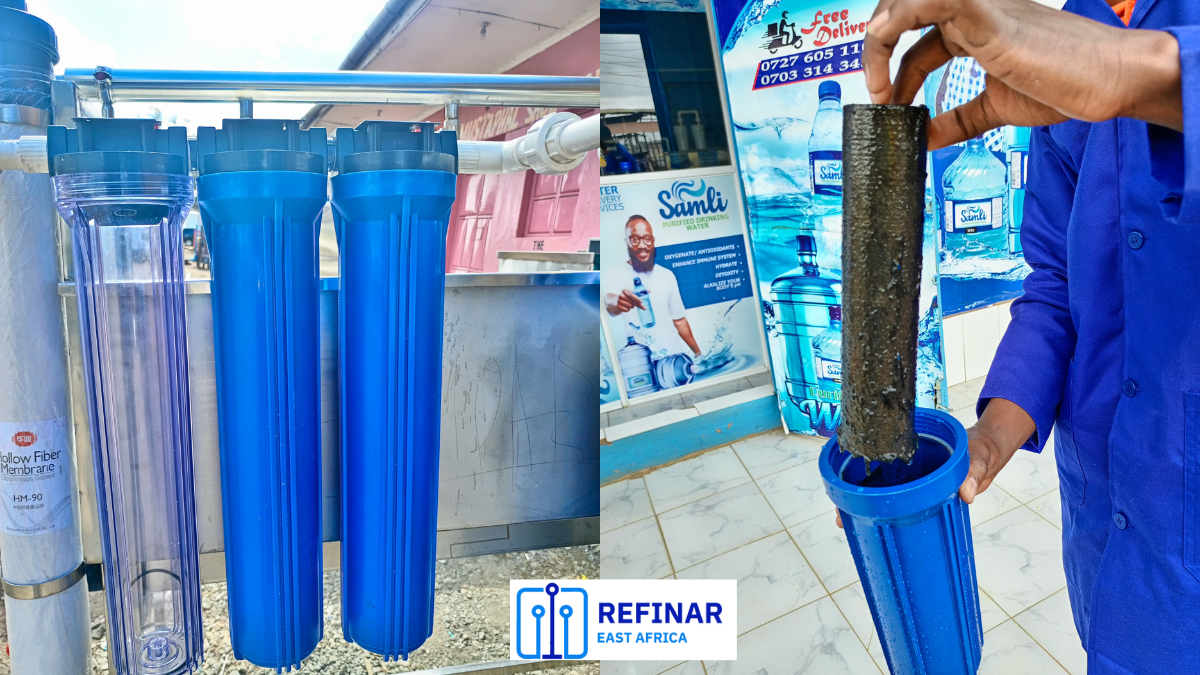Imagine turning on the tap and finding filthy water instead of the refreshing glass you expected. That sounds unpleasant, doesn’t it? Sediment water filters serve as silent guardians against undesirable particles floating in your water supply. But what precisely are they, and how will they help you? Let’s take a look at sediment filtering and how it can improve the quality of your water.
What are Sediment Water Filters?
Think of them as microscopic sieves. Made from various materials like polypropylene or cotton, sediment filters trap physical impurities present in your water. These can include sand, silt, rust, and other debris that can affect its clarity and taste, and even harm your appliances.
How Do They Work?
The magic happens in different ways depending on the filter type. Some, like spin-down filters, utilize centrifugal force to separate heavier particles. Others, like cartridge filters, employ pleated or wound filter media to capture impurities as water passes through. Regardless of the method, the result is cleaner, clearer water free from unwanted sediment.
Benefits of Using Sediment Water Filters
Improved Water Quality:
Sediment filters help enhance the overall quality of water by removing visible particles that may cause cloudiness, discoloration, or unpleasant odors. This improvement contributes to better-tasting and cleaner water for various purposes, including drinking, cooking, and bathing.
Protection for Plumbing and Appliances:
Sediment can accumulate in plumbing lines and appliances, leading to clogs and reduced efficiency. Sediment filters act as a barrier, preventing these particles from entering and causing damage to pipes, faucets, water heaters, and other household appliances. This protection can extend the lifespan of these systems and reduce the frequency of repairs.
Extended Life of Water Filters:
Sediment Water filters work in conjunction with other water filtration systems, such as carbon filters. By removing larger particles before water passes through subsequent filtration stages, sediment filters help prolong the life of downstream filters. This not only saves money on replacement filters but also ensures optimal performance of the entire water filtration system.
Maintaining Water Pressure:
Sediment buildup in plumbing systems can lead to a decrease in water pressure. By capturing sediment before it reaches faucets and showerheads, sediment filters help maintain consistent water pressure throughout the household. This is particularly important for efficient and comfortable use of water fixtures.
Protection for Water-Using Appliances:
Appliances that use water, such as washing machines, dishwashers, and ice makers, can benefit from sediment filtration. The presence of sediment in these appliances can lead to operational issues and damage. Sediment filters provide an additional layer of defense, preventing particles from interfering with the proper functioning of these appliances.
Cost-Effective Solution:
Sediment water filters offer a cost-effective means of water filtration, especially in areas where sediment is a common issue. Regular maintenance and replacement of sediment filters are relatively simple tasks, making them an accessible and economical solution for improving water quality.
How often should I replace my sediment filter?
Regular maintenance of sediment filters is crucial for maintaining water quality. Typically, it is recommended to change sediment filters every 2 to 3 months. However, if your water contains a significant amount of sediment, more frequent replacements may be necessary. Recognizing the need for replacement is important, and indicators include:
Drop in Water Pressure: A noticeable decrease in water pressure can signal a clogged filter.
Changes in Water Characteristics: Any alterations in the taste, smell, or color of your water may indicate the need for a filter replacement.
Decreased Water Flow Rate: If you observe a reduction in the flow rate of water, it’s a clear sign that the filter needs attention.
Visible Sediment Buildup: Actual sediment accumulation in your water is a visible cue for replacing the filter.
Sulfur Odor: The presence of a sulfur-like odor suggests the filter may no longer be effectively removing impurities.
Can I install a sediment filter myself?
Some filters are easy to install, while others might require plumbing expertise. Consider your comfort level and the complexity of the filter system before DIY installation. If you are looking to replace your sediment water filters talk to us at Refiner East Africa, our team will help you maintain your system for quality water flow.
Where can I buy a sediment filter?
If you need high-quality sediment filters, consider Refinar East Africa. We also manufacture many sorts of water treatment equipment and solutions such as Reverse osmosis water treatment machines and more. At Refinar East Africa, we will walk you through every step of the process, providing you with great customer service, installation, and professional guidance to help your business succeed. For additional information and inquiries, please contact us at 0707075702 or info@refinareastafrica.com.


